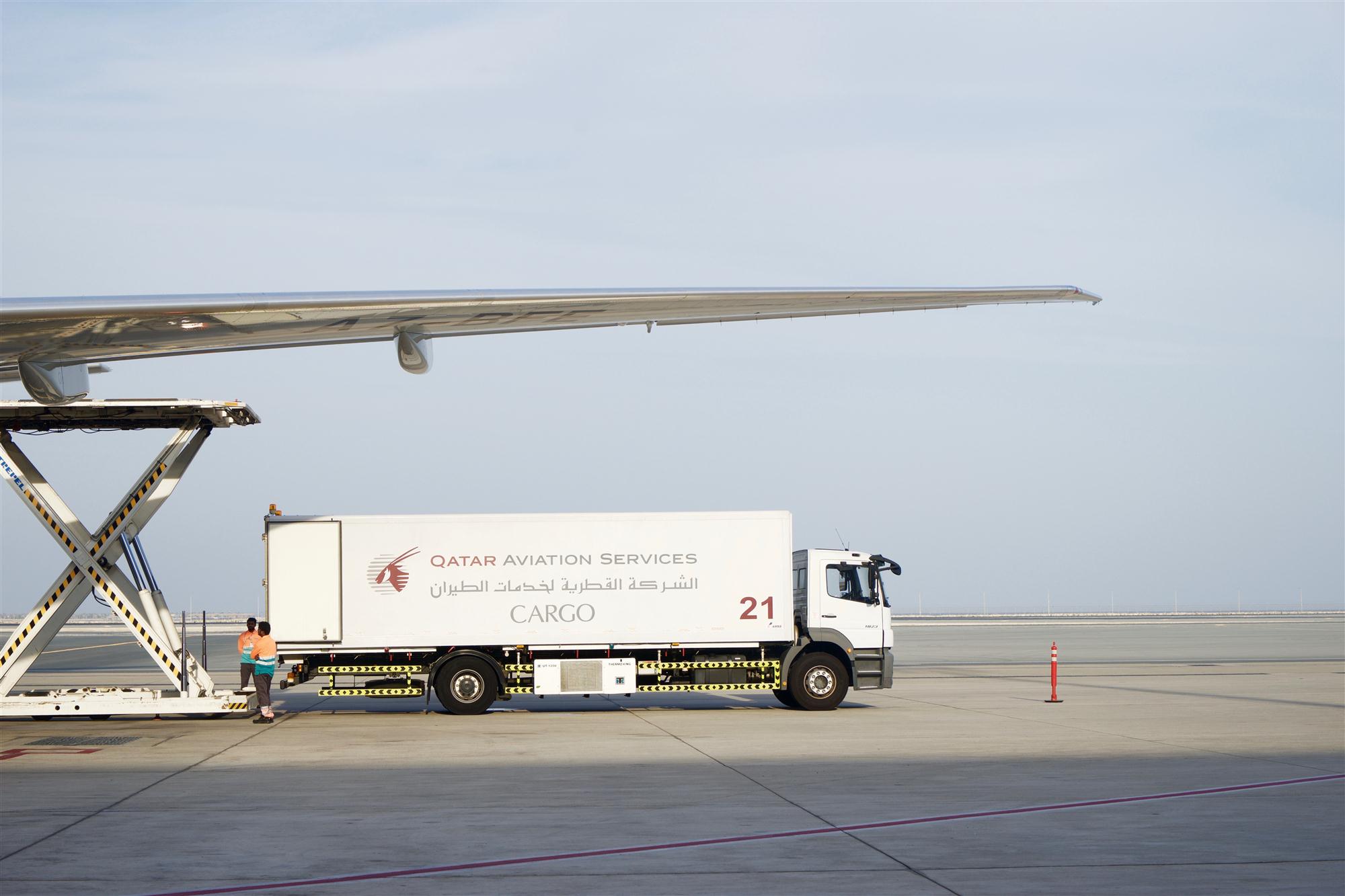Amid growing volumes of business, Qatar Airways Cargo is looking at gradually reducing its leased medium-sized freighter fleet as it purchases more of its own large freighters in the near future.
The carrier currently operates eight Airbus A330-200Fs, two Boeing 747-8Fs and 13 777Fs.
“The A330F is a great aircraft to start a new route or to increase frequency because of the lower financial risk exposure it presents,” said Guillaume Halleux, chief officer of cargo at Qatar Airways, in an interview during the transport logistic China 2018 conference and exhibition in Shanghai. “It was an aircraft that served us very well when we were developing our network and exploring the world. Of the eight A330Fs that we have today, three are leased and will be returned to the owner in the first quarter of 2019. The remaining five are our property and we will continue to operate them.”
At the same time, Qatar Airways is continuing to take delivery of more 777Fs, with one joining the fleet in August 2018, one in late September or October, and another in 2019. The airline also recently signed a purchase agreement at the Farnborough International Airshow for five additional 777Fs.
The two new 747-8Fs, which arrived in September and December 2017, are fulfilling a niche but important role and are probably sufficient for now, according to Halleux.
“We operate them on routes that have the right commodity and the right sort of packaging to fully utilize the volume – mostly Hong Kong, Seoul and Frankfurt,” he said. “We’ve had a couple of record-breaking flights carrying 140 tonnes, so we’re very happy with them. However, we find the 777F to be more versatile and easier to deploy to a wider range of destinations.”
Halleux didn’t rule out adding even more 777Fs further down the line, given the continued route expansion of the airline group as a whole.
“The passenger network development isn’t always a good fit with the needs of the cargo business,” he said. “There may be instances where our passenger network deploys widebody aircraft to tourist destinations that have little air freight movement. It then becomes essential for us to constantly evaluate and balance our capacity with our freighter operations, bringing in more cargo to our hub.”
![Self Photos / Files - QR DOH [6] Self Photos / Files - QR DOH [6]](/Upload/news/2797/self/09838735b1954deeb06cee257d138a3d.jpg)
Of the recent crop of new destinations, Halleux said that London Gatwick looked to be the most promising for cargo. Penang, launched in February 2018 with a 787-8, is doing well thanks to the city’s high-tech manufacturing sector producing shipments of hard disk drives and semiconductors. Cardiff, which started at the beginning of May 2018 and is now operated daily with a 787-8, turned out to be a bit of a pleasant surprise, performing 10-15% above expectations.
Halleux added that there will also be further development of the freighter network later this year, on the back of an incredibly strong 2017.
“It was an amazing year,” he said. “In Asia, we added significant capacity in Ho Chi Minh City and that filled up in no time. We went with self-handling and opened our own office there. We also opened Phnom Penh as a freighter destination, made some schedule changes to Myanmar, and added freighters in Hong Kong.”
According to Halleux, temperature-controlled goods, mail and express are the three business segments that have grown the most in the past year, each having roughly doubled in 2017.
“We would expect them to at least double again in 2018, judging from the first quarter,” he said.” These are added-value products that obviously bring better yields and are on a fast-growth trend.”
For temperature-controlled goods and pharma in particular, Qatar Airways Cargo will continue to focus on implementing processes and resources to give the absolute guarantee that the cold chain will not be broken and that temperature consistency will be maintained.
“We’re the only airline to have invested in a fleet of reefer trucks for ramp transportation of temperature-sensitive goods,” said Halleux. “I think that explains our growth. We’ve been audited by the largest pharmaceutical companies and Doha is an approved hub for all of them. Our performance is close to 100%.”

Having inaugurated a new 2,470-square-metre Climate Control Centre about a year ago for shipments in transit for more than two hours, infrastructure at the hub in Doha isn’t a concern for the next two years. After that, a major expansion project consisting of a second cargo terminal will kick in, including an even larger facility for mail and express.
“The CT2 project may be carried out in phases, but the plan is still for us to reach a total of 4.6 million tonnes in annual capacity,” Halleux said. “We’re currently doing about 2.3 million tonnes.”
A year after several countries including neighbours Bahrain, Saudi Arabia and the United Arab Emirates severed diplomatic relations with Qatar, Qatar Airways Cargo is faring well, despite the negative effects on the passenger business.
Halleux said that there was a surge of cargo in June 2017 after the announcement, but that peak then stabilized. Freighters that had been flying to places like Dubai and Jeddah were quickly redeployed and now operate additional frequencies to Beirut, Muscat and Tehran.
“Now, the blockade has resulted in a slight increase of cargo demand into Doha,” he said. “But since 85% of our volumes are in transit and not Doha-related, it’s honestly a drop in the ocean for us.”
By Jeffrey Lee
Asia Cargo News | Shanghai